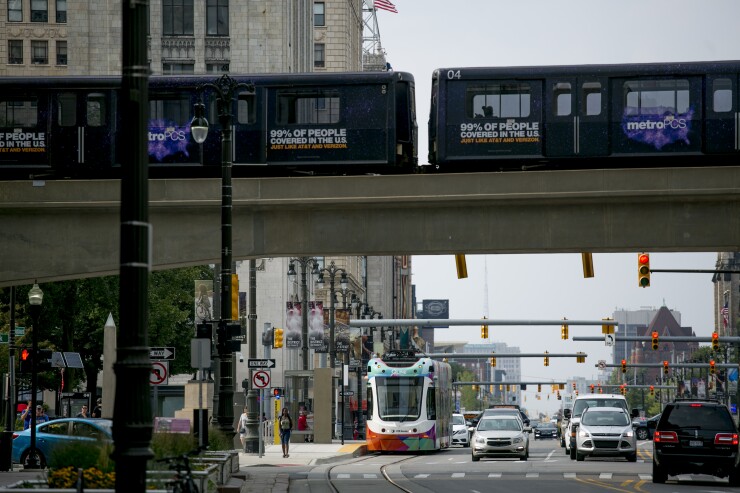Detroit priced $135 million of speculative-grade bonds in its first standalone deal since bankruptcy, at levels better than the city anticipated, said John Hill, the city's chief financial officer.
“We knew that as a result of the investor conferences that we had really good interest in the bonds,” Hill said in an interview after the bonds priced Tuesday. “We priced at about 4.8%, which outperformed Treasurys, so we are very, very pleased.”

The city had originally planned to sell $112 million of new money unlimited tax general obligation bonds, but boosted the size to $135 million on the back of investor demand. The yield on the 10-year in the deal landed at 4.45% with a 5% coupon, about 194 basis points over the MMD triple-A benchmark, and 111 bp over the triple-B. The 20-year landed at 4.95% with 5% coupon, 190 bp over the triple-A and 103 over the triple-B based on benchmarks at market close Tuesday.
The deal came with ratings of Ba3 from Moody's Investors Service and B-plus from S&P Global Ratings. The city was prepared to pay 5.5% to 6%.
Hill said that the bonds were oversubscribed across all maturities and that 30 investors placed orders.
Howard Cure, director of municipal bond research at Evercore Wealth Management, said that pricing on the bond was “about in-line with how a Ba3-rated bond should price."
"Detroit came to market on a very good day and its deal seems to have been well-received," said Lisa Washburn, a Municipal Market Analytics managing director.
"The Detroit deal did well when you consider that the city had one the largest bankruptcy filings in the municipal bond market about five years ago,” said Daniel Berger, a senior market analyst with TM3/MMD and Refinitiv, the financial and risk business of Thomson Reuters, in an email. “These bonds may have been assisted by the bond market rally but there has not been much municipal bond issuance in the high-yield sector. “
Berger said that Detroit investors demanded a high interest rate from these stressed obligors similar to investors in last week's sale of Chicago Board of Education GO bonds. Chicago’s junk-rated school system sold 5-year bonds for a yield of 4.16 percent, or 1.95 percentage points more than what top-rated borrowers pay.
Goldman Sachs was lead manager. Citi and Siebert Cisneros Shank & Co were co-managers. Miller, Canfield, Paddock and Stone Plc was bond counsel. Hilltop Securities was financial advisor.
The bonds are part of $225 million in tax-exempt borrowing the city council recently authorized. The remaining bonds are projected to be issued in 2021.
City officials have said achieving bond market access without the support of state aid or some other backup mechanism was the next big fiscal step for the city, which exited bankruptcy in late 2014 with a debt restructuring that imposed big haircuts on bondholders.
The city's UTGOs remain in junk territory despite upgrades that have acknowledged fiscal strides since the city exited Chapter 9. In May, Moody’s Investors Service upgraded the city’s issuer rating to Ba3 from B1. S&P rates Detroit B-plus. Both assign stable outlooks.
Hill said investors had some questions about the city’s demographics and public schools — concerns outlined in a recent Moody’s report — but he believes investors saw the upside.
“It is a good time for us to come out with a transaction, but I also think Detroit is a compelling story,” Hill said. “It’s a new milestone and it shows an interest in the city’s future, because it was oversubscribed.”

Moody’s warned in a Nov. 8 report that an employment and tax revenue surge downtown has not spread throughout the city. Moody’s estimates Detroit has lost 35,000 residents since 2010.
The rating agency has also warned that the capital needs of Detroit’s public school system pose a threat to the city’s “post-bankruptcy economic revitalization” unless the state or the philanthropic community step in with funding. The school system was rescued by the state government and now has very little funding to make badly needed improvements to its buildings and infrastructure. For fiscal 2019, the district has budgeted just $9 million in capital expenses out of a budget of roughly $760 million.
The city has also launched a redemption offer for bonds it issued in 2014 as part of its bankruptcy exit package. It is targeting $131 million of nearly $632 million of series 2014B financial recovery bonds that mature in 2044.





